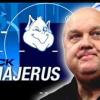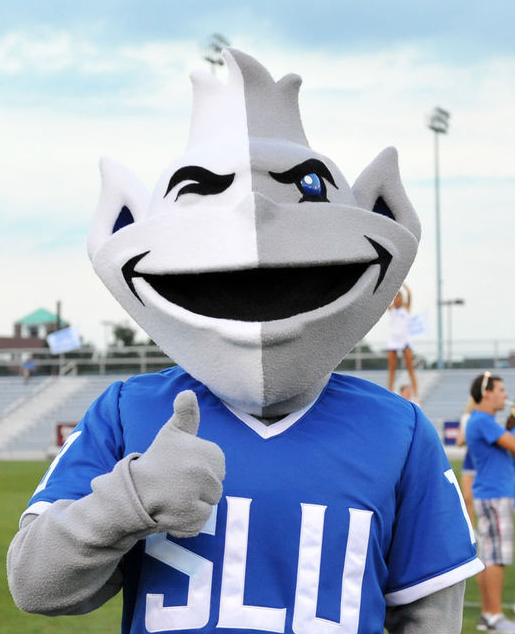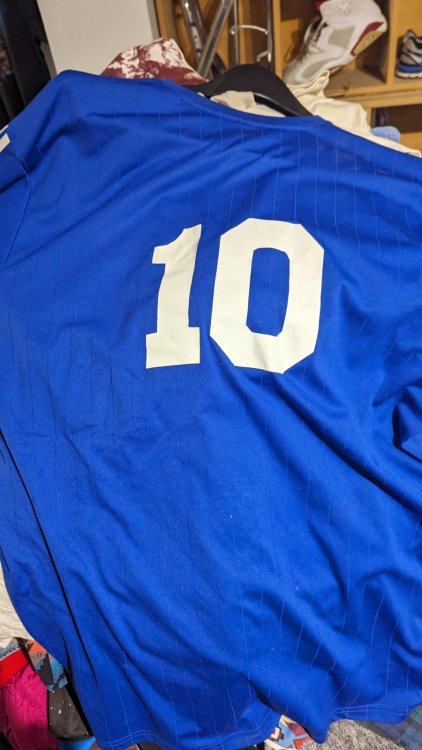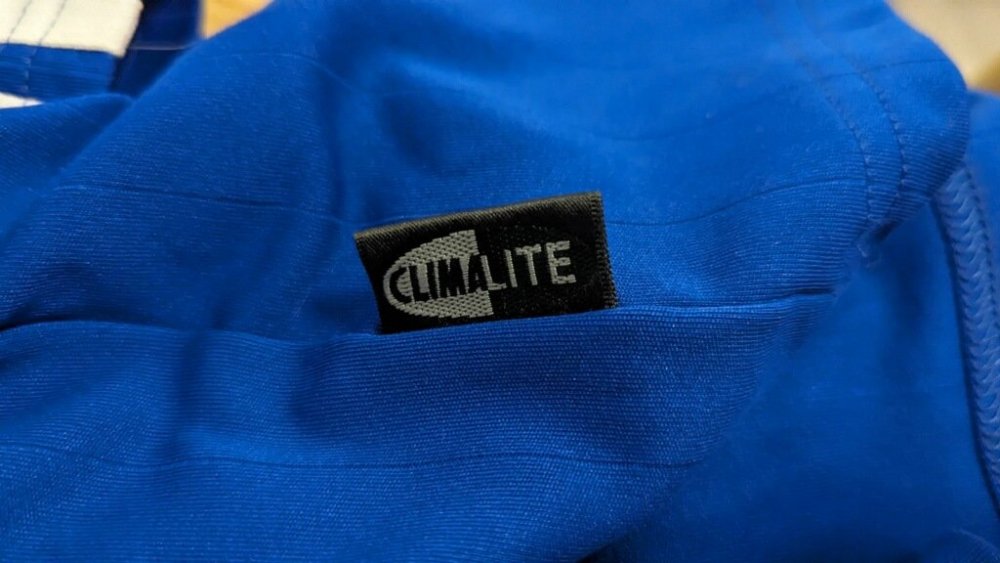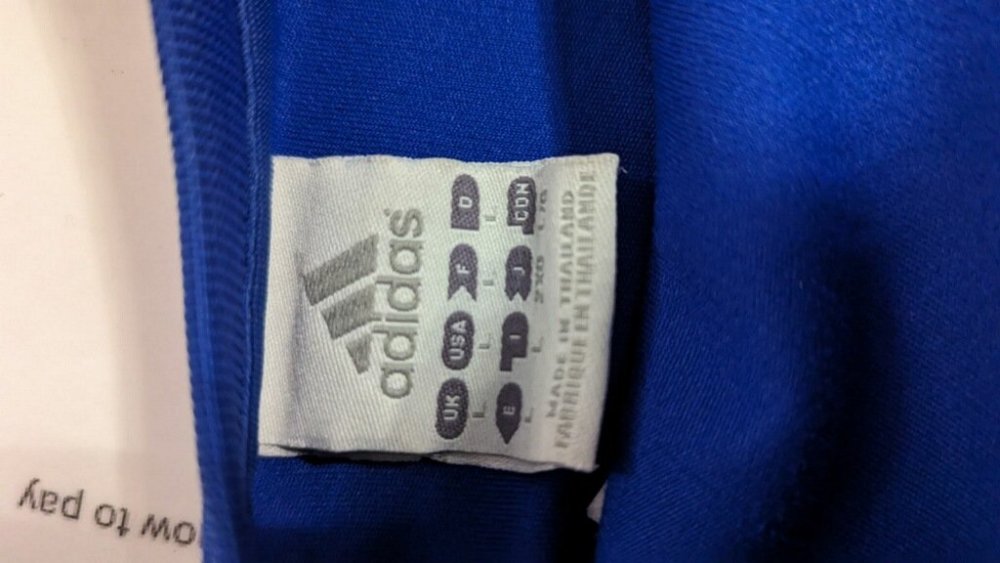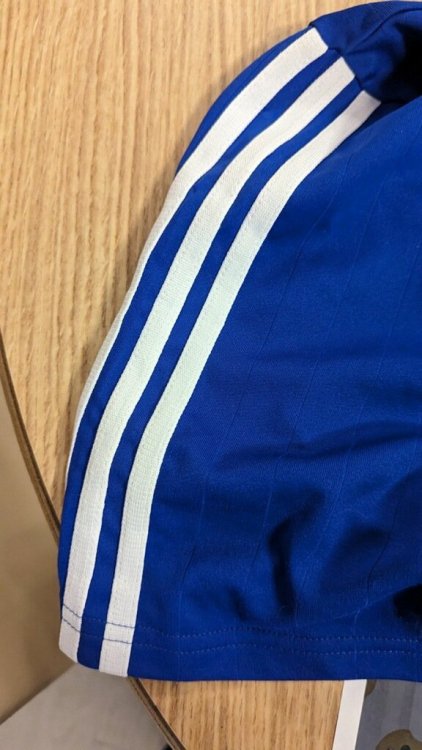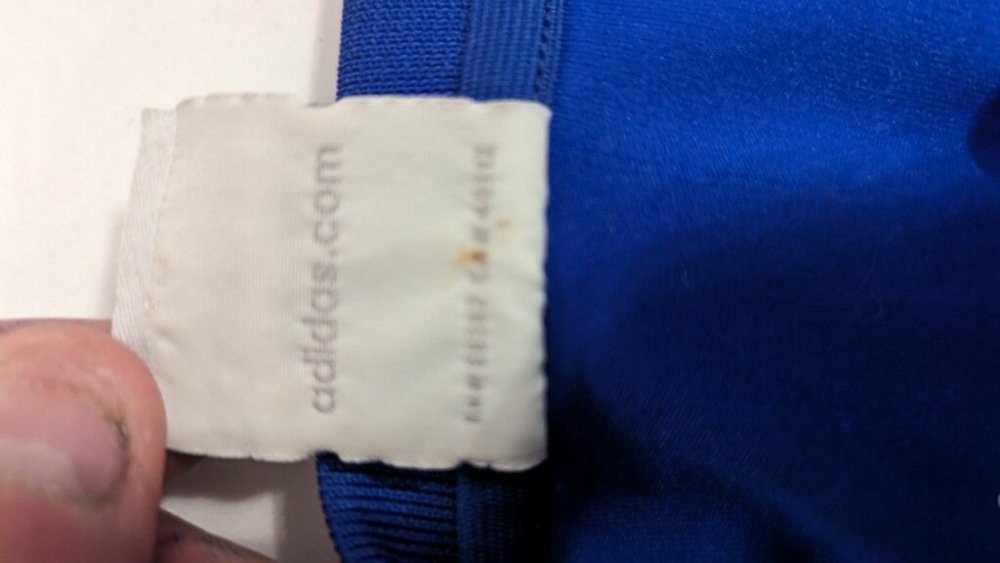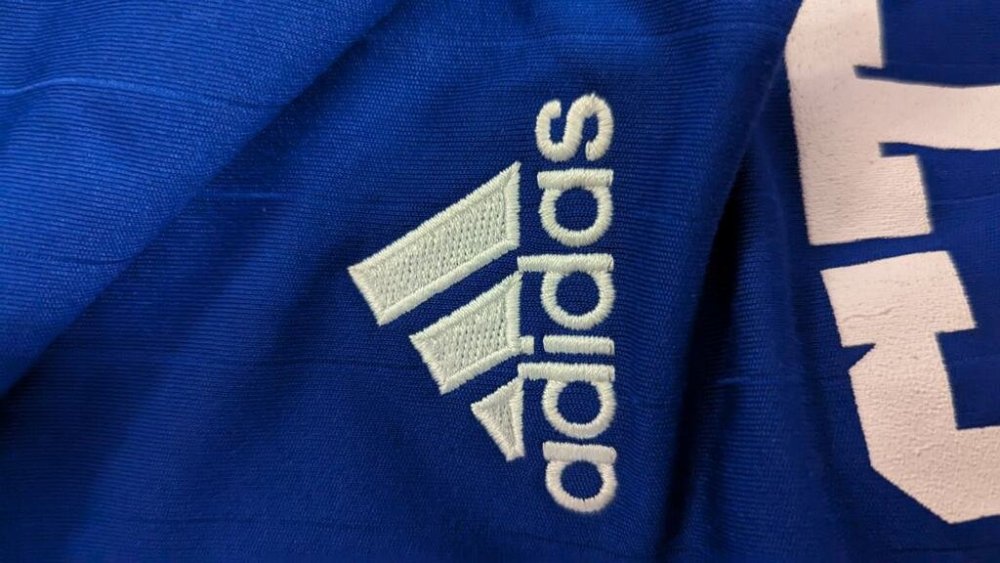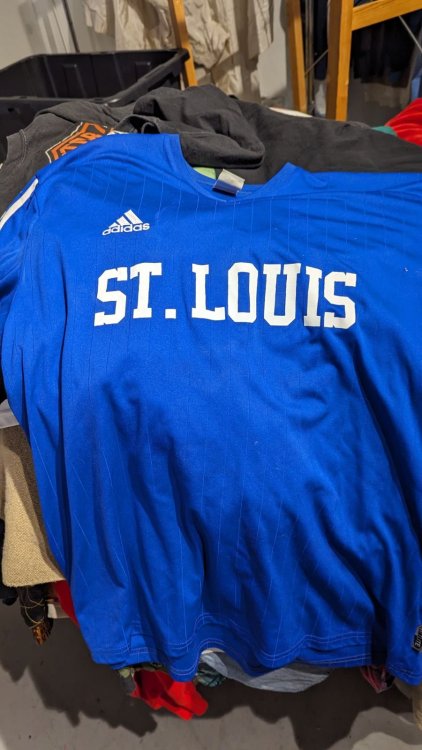-
Posts
428 -
Joined
-
Last visited
-
Days Won
2
About pakapablo
- Birthday 03/24/1970
Profile Information
-
Gender
Male
-
Location
WG, MO
-
Interests
things that are blue
Previous Fields
-
Favorite Billiken
Charles Newberry
Recent Profile Visitors
4,270 profile views
pakapablo's Achievements

Sophomore (3/7)
-
aj_arete liked a post in a topic: WELCOME HEAD COACH JOSH SCHERTZ!!
-

WELCOME HEAD COACH JOSH SCHERTZ!!
pakapablo replied to DeSmetBilliken's topic in Billikens.com Main Board
Author of this article, CJ Moore, on live with Bernie right now talking Schertz in sites. 590am. -
Billikitty7 liked a post in a topic: WELCOME HEAD COACH JOSH SCHERTZ!!
-
CenHudDude liked a post in a topic: WELCOME HEAD COACH JOSH SCHERTZ!!
-
almaman liked a post in a topic: WELCOME HEAD COACH JOSH SCHERTZ!!
-

WELCOME HEAD COACH JOSH SCHERTZ!!
pakapablo replied to DeSmetBilliken's topic in Billikens.com Main Board
You are welcome. I am glad you enjoyed it as much as I did. Saturday April 6, 2024, a good day to be a Billiken fan. -
pakapablo liked a post in a topic: WELCOME HEAD COACH JOSH SCHERTZ!!
-
Old guy liked a post in a topic: WELCOME HEAD COACH JOSH SCHERTZ!!
-
The biggest tragedy was having to sit through the game.
-
majerus mojo liked a post in a topic: WELCOME HEAD COACH JOSH SCHERTZ!!
-

WELCOME HEAD COACH JOSH SCHERTZ!!
pakapablo replied to DeSmetBilliken's topic in Billikens.com Main Board
Nice read. Sorry Athletic but thanks for the great content. Article from a few months ago. Excited for Coach Schertz to get to work! https://theathletic.com/5238989/2024/01/31/josh-schertz-indiana-state-basketball/ How Indiana State basketball’s Josh Schertz rose from ‘anonymity’ to coaching star CJ Moore The 12-year-old boy held the ball in his left hand as he prepared to serve. It was another weekend, another national tournament, this one at Miami’s Junior Orange Bowl, one of the world’s most prestigious junior events. A rustling sound behind him caught his attention. He turned – and to his chagrin – spotted his father, struggling to hold onto a branch of the tree he had climbed to sneak a glimpse of his son on the court. Once when Josh Schertz missed an easy overhead at match point, his father banged his head against the plexiglass in front of him, cracking the glass and leaving a gash on his forehead. Tournament officials removed him. It was not the first time. Back in Miami, Schertz’s dad had broken the rule they had agreed upon; he was no longer welcome at these events. It had become too much. Nine years earlier, Paul Schertz put a sawed-off tennis racket in his toddler’s hands, and Josh was exceptional from the start. By age 10, he was ranked in the state of New York. Then came a regional ranking, then national. When Josh was 12, Paul paid to move his son to Haines City, Fla., to train with Rick Macci, who tutored Jennifer Capriati and the Williams sisters. He traveled the country every weekend playing tournaments. Josh’s success in tennis was intoxicating for his father, who played collegiately at Long Island. But it came at a price. Tennis was never fun anymore. Winning was a relief. No victory could be too lopsided. Where they had dinner, the mood in the house, everything, was dictated by how Josh played. “I remember wanting to be my brother because he was getting all of the attention,” his younger brother, Michael, says. “He would say that he would want to be me, who would just be left alone.” To Josh, his life felt scripted. He’d missed out on a childhood. “I’m Jewish,” he says. “I didn’t have a bar mitzvah.” As time went on, Josh began to realize his dream — or, really, his father’s — was probably not coming true. He was 5-foot-6 when he was 12, and he was 5-foot-6 when he was 15. He was in the top 100 in his age group, but closer to 100 than 1. By the fall of his freshman year, Josh hit his breaking point. After another uncomfortable ride home from yet another tournament, he mustered the courage to approach his dad. I’m done with tennis. His father, eating grapes and mozzarella sticks in the kitchen, was taken aback. He pushed back. This was not a good decision, he said. Josh was unrelenting. This was not a break. Not a sabbatical. This was not an impulsive decision. He wanted to do something different with his life. He exited to the garage, surrounded by all of his tennis gear, and his father followed. Josh worried it might turn violent. If he was going to quit, Paul told him, he wasn’t going to stay there. This was not a place for quitters. Josh gathered his things and went to a friend’s house. Just like that, the millionaire’s son was homeless. Today, Indiana State’s Josh Schertz is one of the most respected mid-major coaches in college basketball. After turning Lincoln Memorial, one of the worst Division II programs in the country, into one of the best over 13 seasons, he took the worst job in the Missouri Valley three years ago and already has the top team. His Sycamores are the best shooting team in college basketball. College coaches rave about his modern offense. Indiana State, 18-3, is on pace to have its best season since Larry Bird was on campus. So how did Schertz — who never played high school basketball — end up a college basketball player and coach? “I’ve lived a majority of my life in anonymity,” he says. “My path is definitely not linear or even probably expected.” Schertz laid down a sweatshirt for some padding on the tile floor next to the duffel bag full of clothes he’d use for a pillow. It was the fall of 1991, he was 15, and he was out on his own. Most nights he’d sleep on friends’ couches, but some nights it was this tile floor. He’d sneak into one of two local schools in Boca Raton and hide out until sunrise in the boys bathroom. He was lost. His safety net was gone. The former straight-A student was skipping school regularly. He fell in with the wrong crowd. Eventually, he quit school altogether. He’d lay there and worry. He figured he was headed toward a life much like his mom’s. Kathi Cook was a nurse when she met Paul Schertz. His buddy wanted to take her out, but he didn’t have a car. Paul did. They married, and Paul bought a department store in Montauk, N.Y., a town on the East edge of the Hamptons. One of Paul’s best friends would host big parties every Saturday for their volleyball team in the Hamptons. It was at those parties, he says, that Cook’s drug use began. When Josh was 6, he went into his parents’ room midday, and Cook looked to be sleeping. He reached out and touched her. She felt balmy; she wasn’t breathing. He screamed for his dad. She was rushed to the hospital in an ambulance. She survived, but that was the end of their nuclear family. Cook got nothing in the divorce. She moved to Brick, N.J., and started waitressing and cleaning houses. She still helped take care of the boys; mostly Michael, as Schertz was usually off training. He remembers her working long days, coming home to make sure the boys had what they needed. Then she’d lock herself in her room with a bottle of Almaden wine and a pack of Marlboros. Schertz can still picture her comforter, dozens of burn holes in it from falling asleep with the TV on and a lit cigarette. Once Schertz moved to Florida, he’d go years without seeing his mom. But now, he considered the possibility that he was about to be her, working menial jobs and battling his own demons. “I just didn’t see where the hope was,” Schertz says. His grandpa saved him. When Seymour Schertz found out that Schertz was without a home, he immediately moved Josh in with him in Delray Beach. He enrolled him to get his GED; Schertz went to night school to satisfy requirements. Then he enrolled at Palm Beach Community College and worked part-time at a carwash and a drug store. He still had a competitive drive, but he wasn’t stepping foot on a tennis court. He tried basketball and loved it. He found pickup games and started playing in leagues. “Being part of a team was so cool,” he says. Opportunity arrived in a chance meeting. Jack Martin, the longtime coach at County College of Morris in New Jersey, was visiting a friend in Boca Raton in the summer of 1994 when Schertz caught his eye during a rec game at the Athletic Club. Martin knew a player when he saw one. He asked Schertz if he ever thought about playing college basketball. Schertz, then 17, had never given it a thought. He explained he hadn’t graduated and hadn’t even played high school basketball. Wouldn’t be a problem, Martin told him. Martin invited him up to New Jersey for a tryout. He proved worthy, and Martin offered him a spot — with his tuition paid for and a place to live, with the former mayor in town. His father thought he was crazy. He figured he was going to be the team manager. “What do you do with that?” Paul asked him. “Why would you want to do laundry?” He never imagined a 5-foot-8 Jewish kid could be a college basketball player, but Schertz was a backup point guard on a team that made the quarterfinals of the national tournament. He also joined the tennis team just for fun and went undefeated until the regional final. That spring Schertz started reaching out to small, four-year schools and found a taker in Webber College, an NAIA school in Babson Park, a tiny town in the middle of Florida. He was a backup guard again, and it was there where he met a girl. In November, his girlfriend, Anna, got pregnant. He was 19. And he did what sounded right; the two married in May. Most of his family objected. His mom and Michael were the only family members to attend the ceremony. Anna had one year of school left to get her psychology degree, and Schertz decided to give up basketball. The newlyweds rented a double-wide. Their son Jordan was born in August. Schertz went to school in the morning, worked at the Vanguard School in the afternoons, supervising children with emotional disabilities, and then worked a night job as a security guard until 4 a.m. He missed basketball, and that spring he started reaching out to schools to see if he could continue his playing career. Piedmont Bible College in Winston Salem, N.C., offered him a spot. Schertz was a starter for the first time in his college career, and the free-wheeling system fit him perfectly. That year he read John Feinstein’s “A Season Inside,” which chronicled the 1987-88 college basketball season, cover-to-cover twice. Schertz realized that coaching could be a real profession. His dad was skeptical. “I told him it was the dumbest idea I’d ever heard,” Paul says. But Paul knew some people in leadership at Florida Atlantic and reached out to see if there were any opportunities for Schertz. The Owls, coming off a 5-22 season, had a graduate assistant spot. His coaching career had begun. He was a student assistant on the 1998-99 FAU basketball team. “He was very confident,” then-assistant coach Brian Lane says. “He had the gift of gab. He could talk to the players and talk to the coaches. Sometimes when you’re young, you open your mouth and stupid falls out. I never got a sense that he didn’t know a really high level of basketball.” Soon after that season, FAU fired coach Kevin Billerman, and Billlerman helped Schertz land a spot as a volunteer assistant at Division II Lynn University. He thrived in that role, so much so that his second season they made him recruiting coordinator and paid for his graduate school. “My grandpa changed my trajectory by believing in me,” Schertz says. “It changed the way I saw myself. I went from a guy that was a high school dropout to a guy that has a master’s degree.” In the spring of 2004, Schertz felt like he’d arrived. Three years earlier, Queens coach Bart Lundy hired Schertz as a full-time assistant. In his second season there, Queens made the Division II Final Four. Then Lundy got hired at High Point and made Schertz his associate head coach. They went 19-11 in their first season, the first time since joining Division I the program had a winning record. They made the Big South Conference tournament championship game, with a chance to reach the NCAA Tournament. Paul drove to Lynchburg, Va., for the final. The Panthers lost by 45, but Paul called his son afterward and left a voicemail: “I always thought this was one of the dumber ideas you’ve ever had, but I’ve got to tell you, I’ve never been more proud of you. And I’m happy to tell you that I’m glad you never listened to me.” He’d earned his father’s respect, but another pitfall was around the corner. In August, Schertz and Anna got divorced. “It was hard,” Schertz says. “In this business, you always feel like you’re sacrificing something and it was hard going from one day a house filled with people to the next day everything was gone. Furniture was gone. Kids are gone. It was just me and a cat, a couch and a bed. It was pretty empty. Pretty lonely.” Three months later, he met Natalia, his wife of 16 years. Schertz spent five seasons at High Point. He was desperate to become a head coach, and in 2008, he got an offer from Lincoln Memorial in Harrogate, Tenn. Since joining Division II in 1999, the Railsplitters had just one winning season. Small town. Small student population. No diversity. No good restaurants. “Middle-of-nowhere, Tennessee,” Schertz says. “We were flat, dead on our butts,” says Pete DeBusk, chairman of LMU’s board of trustees. Schertz saw the potential in the place. The arena was nice. Cincinnati and Louisville were both three hours away; Atlanta was four. He knew he could recruit and evaluate. Previous coaches had tried to win with transfers. He planned to recruit high schoolers and redshirt every recruit, so he’d have them five years. “We did the opposite of what they had always done,” Schertz says. His first year, LMU went from winning one conference game to eight. The next season his boys decided they wanted to live with him, and his ex-wife signed over custody. The program won 20 games for the first time in 21 years. The third year, LMU made its first NCAA Tournament and won its first South Atlantic Conference title, starting a run of eight straight tournament appearances and seven conference titles. He was the star of the town. Everyone knew him and he got to know everyone. And he found a second father in DeBusk, who made sure he had everything he needed, whether it was a practice facility, or in 2013, borrowing DeBusk’s private plane to go get his mom. Cook had been living in skilled nursing facilities since suffering a brain aneurysm in her mid-40s. Doctors didn’t think she’d survive the aneurysm; she surpassed all expectations. Then on Sept. 13, 2013, she was diagnosed with liver cancer. Soon after, her femur broke because the cancer had reached her leg. That’s when Schertz got on DeBusk’s plane and brought his mom home with him. Doctors gave her months to live. She lived another two years. Twice a week Schertz would take his mom to her favorite spot, Applebee’s. She introduced him to everyone as the boss of LMU. “All that time I missed as a kid, I wasn’t able to get it back,” Schertz says. “It was a different lens and time in my life. That’s where I learned that two things can be true, right? I think people tend to paint somebody with a brush. ‘She’s an addict, so she’s a terrible mother or terrible person.’ It wasn’t like that at all. … She was a great person.” On Sept. 13, 2015 — exactly two years after her cancer diagnosis and on Paul’s birthday — Schertz slept that night on a mattress next to his mom’s bed because they knew the end was near. In the middle of the night, he woke up and went to her bedside. He told her how much he appreciated her and enjoyed the previous two years. It was the most time they’d ever spent together. He told her he loved her. And then he watched her take her last breath. “The deeper you love somebody and more you care, the more painful the grief is when they’re gone. That is the price we pay,” he says. “The alternative is to not care about anyone or love anybody deeply and you don’t experience any pain, but you also don’t get the incredible moments and memories that you experience when you love people.” Last summer Schertz visited Florida Atlantic coach Dusty May, his friend of five years, in Boca Raton. The plan was to talk some ball in the morning, grab some food and meet a friend for pickleball. Ten hours in, both realized they were starving and hadn’t left the office. May says his friend is “as good as there is” as a coach, noting his “obsession with learning and growing.” After his first season at LMU in 2009, Schertz spent a week with Bill Self’s Kansas program. When it was time to meet with Self, the Jayhawks coach got pulled into a meeting and handed Schertz his playbook. “You couldn’t have given me the Torah and it’d have been any better,” Schertz says. He frantically took notes the next two hours. Running Self’s high-low offense, he made five straight Division II NCAA Tournaments at Lincoln Memorial. In 2014-15, his team went 30-3. The next September, he visited Brad Stevens and the Boston Celtics. He believed the five-out systems in the NBA were where the game was going. He scrapped his entire offense in October. “My staff thought I was crazy,” he says. LMU won 34 games and made the national championship. Now in his third year at Indiana State, the Sycamores are likely headed for their first NCAA Tournament bid since 2011, and Schertz’s five-out attack is the most efficient half-court offense in college hoops. Though Schertz and his father had a complicated past, he inherited his dad’s willingness for reinvention. Paul was a millionaire twice — first running a drug store in the Hamptons, then later in commercial real estate in Florida — and lost it all twice. “It’s my special gift,” says Paul, who texts with Josh every morning. Much of how Schertz leads, he says, he learned what not to do from his father. He never wants his players to feel the pressure he once felt. “I want our guys to have an enjoyable experience and not carry the weight of the world on their shoulders every single time they take the floor,” he says. “It’s important to never lose the joy of competing and playing.” Schertz sees it as his job to instill confidence — much in the way his grandfather did for him — and then put his players in position to succeed. He did not keep any mementos from his childhood. No pictures. No trophies. No newspaper clippings. But he holds onto the lessons. “Sometimes you get wounds and you just move past them,” he says. “Sometimes you get wounds that never heal, and those are scars. And the scars just remind you how strong you are.” -
The men’s loss to siue was at the Fetz.
-
pakapablo liked a post in a topic: GDT: SLU vs dayton
-
willie liked a post in a topic: GDT: SLU v. Richmond
-
billiken_roy liked a post in a topic: GDT: SLU v. Richmond
-
Billikenbooster liked a post in a topic: GDT: SLU v. Richmond
-
JettFlight5 liked a post in a topic: GDT: SLU v. Richmond
-
Highlight of the game for me was the national anthem performance by the Impact Church singers. That was AMAZING. I am usually super patriotic but I was proud to be an American after listening to that rendition.
-
Post game radio show eventually Rammer and Earl brought up these two in game accomplishments before Ford mentioned them during the interview.
-
pakapablo liked a post in a topic: GDT: SLU v. Richmond
-
pakapablo liked a post in a topic: 2024 SLU Men's Basketball Head Coaching Search
-
pakapablo liked a post in a topic: SLU Baseball 2024
-
Appreciate the research time and opinions. See you Wednesday night!
-
-
-
Any thoughts on what year this jersey applies to? #10. Friend has a resale store and this jersey came in. He is trying to place it. Thinking 2000-2005 but neither of us had much luck on google. .
-
pakapablo liked a post in a topic: GDT: SLU v. SIU-Carbondale
-
Maybe he brings in his good friend The Legend as an Assistant Coach.
-
pakapablo liked a post in a topic: Justin Tatum
-
pakapablo liked a post in a topic: Justin Tatum
-

c.may on 590 the fan
pakapablo replied to longtimelistenerfirsttimec's topic in Billikens.com Main Board
Thanks for the recap. Bally's MW carrying games as before means home games. When you attend most of the home games that is pretty worthless. What I care about is road games, I guess most of the road games will be on ESPN+ again. -
pakapablo liked a post in a topic: Tatum & Beal
-
pakapablo liked a post in a topic: Tatum & Beal
-
Beal and Larry the Legend have a few nice things to say about J'Good. Definitely be watching more Sun's games this season. Jordan Goodwin aims to wear down Suns opponents
-
I know it is valuable real estate but it would be sweet to see the Billiken logo on a Formula 1 car. SLU donor Richard Chaifetz acquires stake in Formula One racing team https://www.bizjournals.com/stlouis/news/2023/06/28/formula-one-richard-chaifetz-alpine-racing.html?utm_source=st&utm_medium=en&utm_campaign=ae_b&utm_content=SL&j=31931681&senddate=2023-06-28



